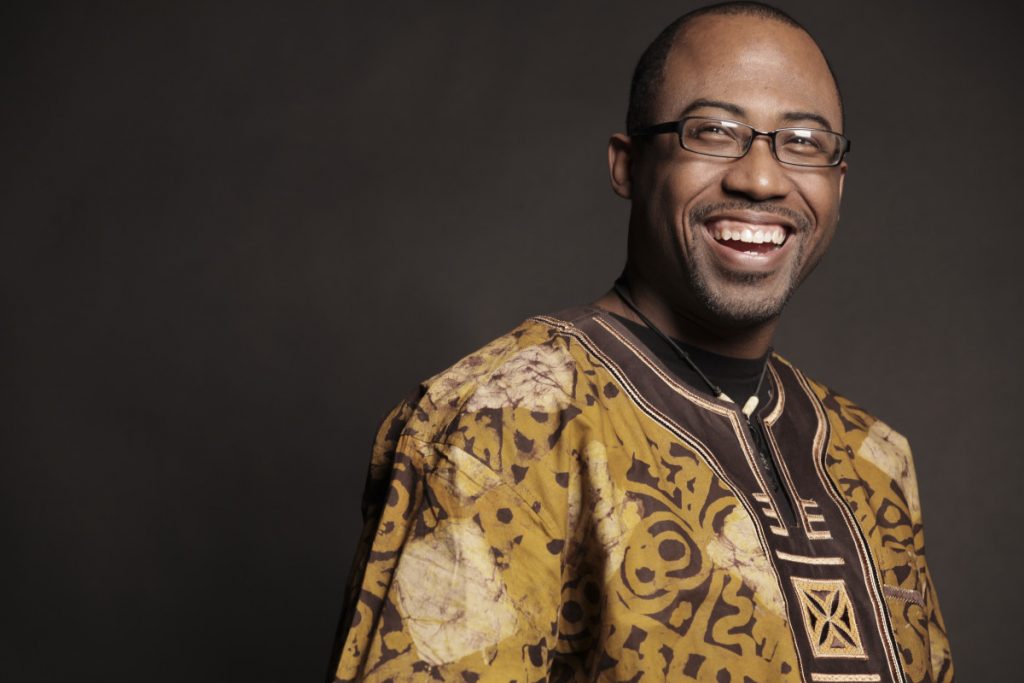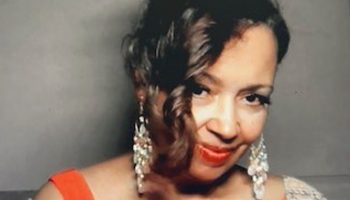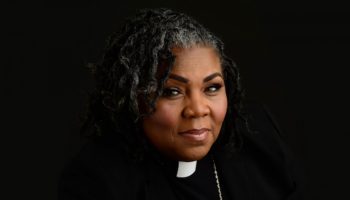NICK DANLAG – STAFF WRITER

When the Rev. Heber M. Brown III was 9 years old in a social studies class, he remembers learning about many notable figures, like Napoleon Bonaparte and King Louis XIII, but he knew something was missing.
“As a little boy, I’m like, ‘OK, that’s nice — but I don’t see nobody that looks like me. Where are we?’ ” said Brown, founding director of Orita’s Cross Freedom School, an African-centered youth educational program based out of Pleasant Hope Baptist Church in Baltimore, where he is also senior pastor.
So Brown asked his teacher, whose face went red, “beet red.” The teacher stammered and stumbled over his words.
“I didn’t even realize fully what I said,” Brown said. “It was an honest question from a 9-year-old boy. I wanted to hear about myself in the stories.”
Brown knew from his teacher’s response that there was a lot more to the story. As Brown grew older, he continued to ask questions and examine the education system in the United States.
“We’re often taught history from the perspective of the conquerors, from the perspective of the warlords and from the perspective of the oppressor,” Brown said.
At 1 p.m. EDT Friday, July 9 on the CHQ Assembly Video Platform, Brown will talk about the role Black churches can play in addressing food insecurity and advancing society. He will present his talk as a part of the African American Heritage House 2021 Lecture Series.
Eventually, Brown said, he was introduced to many different perspectives of history, mainly through books like Paulo Freire’s Pedagogy of the Oppressed; bell hooks’ Teaching to Transgress; Howard Zinn’s A People’s History of the United States; and James W. Loewen’s The Lies My Teacher Told Me: Everything Your American History Textbook Got Wrong.
“I began to wonder,” Brown said, “what if we take the traditional Sunday school idea, baptize it into a liberatory educational process, and produce something that speaks to spiritual formation, racial pride and self esteem? Out came Orita’s Cross Freedom School.”
When the Pleasant Hope Baptist Church building and local schools are closed, Brown and others open the church doors and make it a school for the community’s children. They focus on elementary to middle school students, with older students assisting in lessons: Black history, African history, home economics, sewing, herbalism, auto mechanics, gardening, coding, field trips, dance and much more.
“The children love it,” Brown said. “The parents love it because they have somewhere for their children to go when school is closed. And we love it because we’re taking what we already have: a sanctuary, classrooms, a parking lot and kitchen, and putting it to good use during the week when we’re not using it. We’re helping our community and growing with our children along the way.”
Brown believes a freedom school can have far-reaching effects.
“I’m talking about more than just an ethical food system,” Brown said. “I believe that spiritual ethics and religious underpinnings can help us to dream about what that looks like in ways that cold, hard capitalism restraints and restricts us from.”
Brown also said he wants to give people the chance to reimagine what church is.
“If our faith-based institutions and organizations are nothing else,” Brown said, “they are spaces that curate sacred stories that help to feed our imagination, of not only what happened prior to us coming, but also what’s happening next.”
When Brown gives Zoom interviews, a row of picture frames stand directly behind him, with many candles of various sizes behind the photos. He said these were photos of his ancestors and his “heroes and sheroes.”
“I try to keep them close as a source of inspiration,” Brown said.
One of his heroes is the Rev. Vernon Johns, who is largely overlooked because his work came right before the more famous civil rights movement.
“He’s one that really ranks very high for me,” Brown said. “Johns has a powerful legacy of ministry that intersects with farming and food and really getting closer to the land.”
Like Johns, Brown works to combat food insecurity within the Black community. He said that many people tend to view the challenges the Black community encounters from a deficit mentality.
“While all of that can be valid, I think it’s equally important to consider: What does the African American community already have in its hand that can be useful to addressing whatever the challenges (are)?” said Brown, who in 2015 founded the Black Church Food Security Network.
In terms of food availability, Brown said, Black churches bring a lot of resources to the table. He said in the United States, much of the land that Black people owned was lost, through gentrifying neighborhoods and redlining practices — what is referred to as Black land loss.
“I began to think about, well, where is the land that Black folks have that we can (use)? The bottom line is, we need to eat and we need nutrient-rich produce,” Brown said. “We know that the corner stores are oftentimes not the best option to promote flourishing in our community.”
This is where churches come into play — with land, kitchens, organized people and many basic ingredients.
“I’m not arguing that Black churches all by themselves can create food systems completely detached from other important inputs and outputs. But it can be a space where we can generate some momentum,” Brown said.
He said this momentum can attract other partners and ideas, and Black churches can be the starting point for a “dignifying way to address the challenge of food apartheid and food insecurity.”
Some organizations, Brown said, take a paternalistic stance when trying to address problems of food insecurity in different communities. Sometimes these organizations will have rules and practices, such as limits on food a person can take and strict identification requirements, that Brown said “can corrode a person’s dignity.”
“Now imagine,” Brown said, “parents walking into a food pantry with their children and being treated as if they are less than human when they need food, what I believe is a basic human right.”




